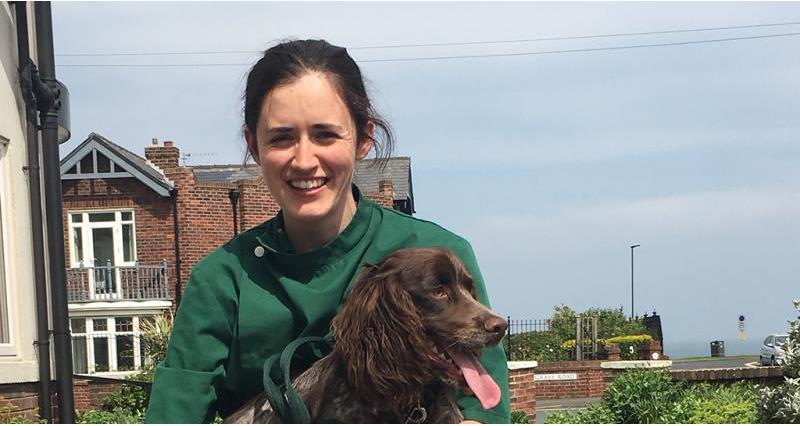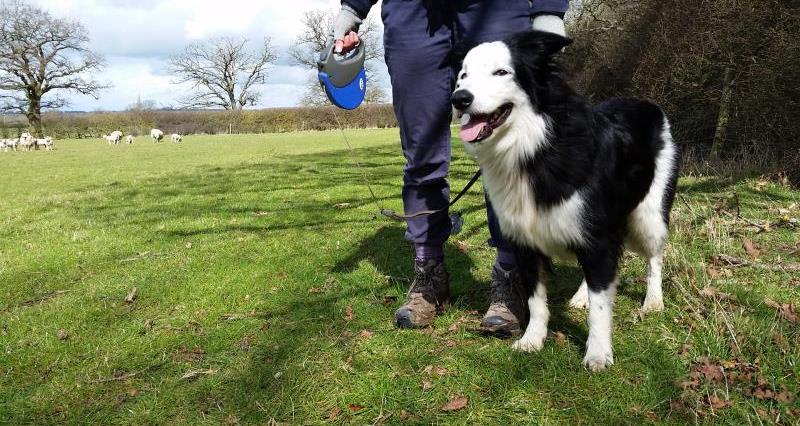Dr Rosie Howson is a vet working on a farm and small animal practice in North Yorkshire. She gives her top tips for taking care of man’s best friend (and colleague).
Puppies
It is safe to assume that if the puppy is under four months old and starts showing signs of lameness, diarrhoea, vomiting or in fact any sign of ill health, it needs to see a vet. Puppies get poorly quickly so it is never too soon to call for advice. It’s important to remember that puppies under six months old need worming monthly as they are much more prone to picking up parasites than adults.
Adult dogs
Once a dog is about six months old, most vets recommend thinking about neutering. In bitches, this means spaying her (removing her womb and ovaries) and in dogs, castration (removing his testicles). The obvious benefit of neutering is to prevent unwanted pregnancy, and puppies but particularly in bitches, a number of health benefits also exist. Spaying bitches prevents against life threatening womb infections (pyometra) but also protects against breast cancer.
Young adult dogs don’t commonly need to see a vet more than once a year for a booster, however, it is important to see a vet if you see:
• Vomiting – especially if your dog is a scavenger.
• Cuts/scrapes/wounds – the sooner you take a dog to a vet, the better. New, fresh wounds are much easier and quicker to stitch up and less likely to get infected.
• Lameness.
• Coughing – kennel cough is common amongst working dogs. If your dog coughs, keep it away from others until it has stopped as kennel cough is highly contagious.
• Diarrhoea – often will get better by itself by feeding the dog bland food (chicken and rice) but if it doesn’t seem to improve or the dog seems unwell, take it to the vets.
Elderly dogs
When dogs get past about the age of about eight, most will start to slow down a bit. While they are still as likely to get a cut or a wound as a younger dog, they are more prone to illness and will need to be seen by a vet if you notice:
• Sudden, unexplained weight loss
• Rapidly growing or changing lumps or bumps
• Drinking more than usual – this can indicate different diseases so most vets will take a blood sample to check liver and kidney function if your dog is drinking more. If you own an un-spayed bitch, drinking more can mean a womb infection, which can be diagnosed with an ultrasound scan.
• Slowing down – Being slow to get up in the morning and more tired after exercise isn’t just old age, it can mean your dog has arthritis. Much the same in dogs as it is in people, arthritis can be painful but it is also treatable with the right medication. However, it is a bad idea to treat dogs with human pain relief as drugs such as ibuprofen are highly toxic to dogs.
 Dr Rosie Howson and her dog Splash
Dr Rosie Howson and her dog Splash
Content from the NFU’s award-winning members’ magazine, British Farmer & Grower. Find out more about our outstanding suite of publications here.
